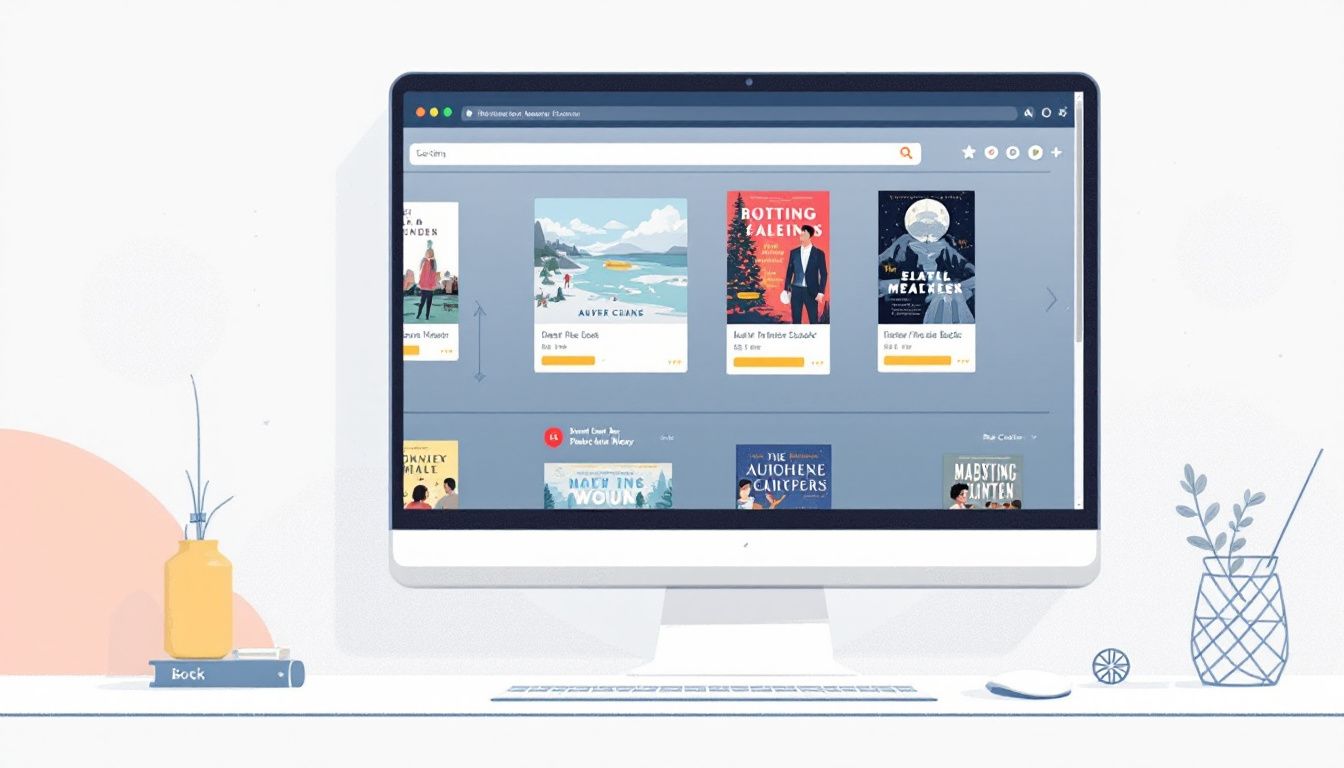How to Find Comparable Titles (Comp Titles): Complete Guide for Authors

How to Find Comparable Titles (Comp Titles): Complete Guide for Authors
Quick Answer
What are comp titles and how do you find the right ones for your book?
Comp titles (comparable titles) are recently published books (ideally within 2-3 years) that share your book's genre, themes, audience, or narrative style. Find them by: analyzing Amazon's "Also Bought" sections, reviewing Goodreads shelves and lists, studying publisher catalogs in your category, and examining books with similar narrative elements. The ideal comp combines commercial success (proving market demand) with specific similarities to your book (demonstrating fit). Position your book at the "narrative crossroads" where two successful comps intersect—for example: "X meets Y" where X and Y are recognizable bestsellers.
Top 3 comp title criteria:
- Recent Publication - Within 2-3 years (shows current market trends)
- Comparable Scale - Not too successful (avoid Hunger Games) or obscure (unknown titles don't help)
- Clear Connection - Specific similarities readers/agents will understand
In today's publishing landscape where agents receive 200+ queries weekly and readers face 4 million new books annually, comp titles are your positioning superpower. They instantly communicate your book's market fit, target audience, and sales potential—often in a single sentence.
Whether you're querying agents, pitching publishers, or marketing your indie book, mastering comp titles transforms how the industry perceives your work. Let's start with the fundamentals.
Understanding Comp Titles: Why They Matter
Comp titles serve three critical functions in publishing:
1. Query/Pitch Comps - Convince agents your book has commercial viability (2-3 recent, successful titles)
2. Marketing Comps - Target readers who loved similar books (5-10 strategic titles)
3. Positioning Comps - Define your book's market intersection (2 primary crossroads titles)
According to QueryTracker's 2024 Report, queries with strong comps receive 35% more requests than those without. For indie authors, books marketed with "readers of X will love..." messaging see 40% higher click-through rates and comparison-based Amazon ads convert at 2-3x the rate of generic ads.
Key Criteria for Strong Comps:
- Published within 2-3 years (shows current market awareness)
- Commercially successful but not blockbusters (10,000-100,000 copies, not 10 million)
- Share 2-3 specific elements with your book (tone, pacing, themes—not just genre)
- Prove market demand for books like yours

The Narrative Crossroads: Your Book's Unique Positioning
Now that you understand what comp titles do, let's explore the most powerful positioning strategy: identifying your book's narrative crossroads—the intersection where two successful titles meet.
The "X Meets Y" Formula
Structure: "The [Specific Element] of BOOK X meets the [Different Element] of BOOK Y"
Strong Examples:
- "The dark family secrets of Big Little Lies meets the twisty timeline of Gone Girl"
- "The magical academia of Ninth House with the found family of The House in the Cerulean Sea"
Why This Works: Instantly signals genre, targets fans of both titles, and creates memorable positioning.
How to Find Your Crossroads
- Identify your 2-3 strongest elements (tone, setting, character type, plot structure)
- Find successful books known for each element (published 2023-2026)
- Test the intersection: "The [element A] of BOOK X meets the [element B] of BOOK Y"
Pro Tip: You can use one movie/TV show with one book for high-concept stories: "Knives Out meets Big Little Lies in a corporate setting"
Subscribe & Get Your Free Marketing Plan Template
Receive regular updates on marketing best-practices, AI shortcuts, and get our proven 4-phase marketing roadmap for free.
Unsubscribe anytime.
How ManuscriptReport Automates Comp Research
Manual comp research takes 20-30 hours. ManuscriptReport's Marketing Report delivers professional analysis in 10 minutes. Fantasy authors Ross & Deborah used to spend countless hours hunting for comps—now they use ManuscriptReport's comp list as their "research starter pack" for BookBub ads and targeting:
What You Get ($49):
- 10 Curated Comp Titles with similarity/difference analysis
- Narrative Crossroads Positioning ("X meets Y" statements ready to use)
- Target Audience Insights based on comp readership data
- Category Recommendations for Amazon/retailers
- Marketing Strategy leveraging your comps
Perfect for query letters, book marketing, and understanding your market position.
Where to Find Perfect Comp Titles
You know what makes a strong comp and how to position your book—now let's explore the best places to discover them.
Amazon Research Strategies
"Customers Also Bought" Chain: Start with a similar book, check "Also Bought" section, repeat on those titles. Books appearing repeatedly = strong comps.
Amazon Sales Rank Guide:
- Under 10,000: Too successful for comps
- 10,000-100,000: Sweet spot
- 100,000-300,000: Acceptable for debut authors
- Over 500,000: Too obscure
Category Browsing: Navigate to your sub-genre, filter by publication date (2023-2026), check bestsellers.
Goodreads Research
User Shelves: Find a similar book, check its "Popular Shelves," click your sub-genre shelf to discover 100+ books readers group together.
Listopia: Search "[Your Genre] Best Books 2025/2026" for curated lists with 100+ votes.
Reviews: Read 5-star reviews of potential comps—reviewers often mention "If you loved [Book X]..." comparisons.
Publisher Catalogs & Genre Sites
Publisher Research: Check your comp's publisher website for similar recent releases in their catalog.
Genre-Specific Resources:
- Romance: Smart Bitches Trashy Books, All About Romance
- Thriller: CrimeReads, Mystery Scene Magazine
- Fantasy: Tor.com, Locus Magazine
- Literary: Prize shortlists (Booker, National Book Award)
Reddit & Online Communities
Subreddits: r/suggestmeabook, r/Fantasy, r/RomanceBooks—search "[comp title] similar books"
Facebook Groups: Join 10+ genre groups, search for "books like [potential comp]"

Evaluating Comp Title Quality: 5-Point Checklist
You've found potential comps—now it's time to evaluate which ones are truly strong. Use this framework to separate winners from weak matches:
1. Recency
Ideal: 2-3 years old | Acceptable: 3-5 years | Avoid: Older than 5 years (except genre-defining classics)
2. Commercial Success (The Goldilocks Zone)
Sweet Spot: Amazon rank 10,000-100,000, Goodreads ratings 10,000-100,000 Avoid: Mega-bestsellers (Harry Potter) or obscure titles (<5,000 ratings)
3. Specific Similarity
Strong Comp: Shares 2-3 specific elements (tone + pacing, setting + themes, voice + plot structure) Weak Comp: Only shares broad genre
✅ "My book shares Gone Girl's unreliable narrator and marriage-under-microscope themes" ❌ "My book is like Gone Girl because both are thrillers"
4. Audience Alignment
Would readers who loved your comp genuinely enjoy your book? Check Goodreads reviews, "Also Bought" patterns, and reader group discussions.
5. No Disqualifiers
Avoid: Self-published comps (for trad queries), unpublished books, different formats (fiction vs memoir), drastically different age categories
Common Comp Title Mistakes to Avoid
1. The "Too Famous" Trap: Comparing to Harry Potter/Hunger Games signals unrealistic expectations. Use books that sold 10,000-100,000 copies, not 10 million.
2. Using Classics: "Like Pride and Prejudice but modern" doesn't show current market demand. Find recent books that already updated that concept successfully.
3. No Explanation: "Comps: Book A, Book B" without context wastes your opportunity. Always explain: "Like Book A's [specific element] with [your unique twist]"
4. Only One Comp: Provide 2-3 comps showing different facets of your book. Single comps suggest limited research.
5. Wrong Genre/Age Category: Don't comp YA to adult fiction, or literary fiction to commercial thrillers. Stay within your category.
6. Based on Your Influences: Comp to what's selling NOW, not what inspired you years ago. Your influences ≠ your market position.
7. Self-Published Titles: Avoid in traditional queries (agents want proof of commercial viability through trad publishing).
How to Use Comps Effectively
Once you've identified and vetted your comp titles, here's how to deploy them strategically across different contexts:
Query Letters (Traditional Publishing)
Format: "[TITLE] is a [word count] [genre] that will appeal to readers of [COMP A] and [COMP B]. Like [COMP A], my book features [specific similarity], while [COMP B]'s [element] echoes my [your version]."
Keep to 2-3 sentences, explain specific similarities, use recent successful (not blockbuster) titles.
Book Descriptions (Amazon/Goodreads)
Add at end: "Perfect for readers who loved [COMP A] and [COMP B]"
Amazon Ads
Target comp titles as keywords, use author names. Ad copy: "Loved [COMP TITLE]? Try this..."
Social Media
Create comparison graphics, use hashtags like #[CompTitle]Readers, format posts as "If you loved [COMP], add this to your TBR"
Quick Action Plan: Finding Your Comps
Phase 1: Research (2-3 hours)
- List your book's 2-3 defining elements (tone, setting, character type, plot structure)
- Search Amazon in your sub-genre, filter 2023-2026, note 10-15 titles with sales rank 10k-100k
- Check Goodreads "Listopia" and user shelves for patterns
Phase 2: Evaluate (2-3 hours)
- Read sample chapters of top candidates
- Apply 5-point checklist (recency, success level, similarity, audience, no disqualifiers)
- Narrow to 5-7 strongest comps
Phase 3: Position (1-2 hours)
- Identify your "X meets Y" crossroads using 2 strongest comps
- Craft positioning statements for queries, marketing, ads
- Test with critique partners
Total DIY Time: 20-30 hours
Save 20+ Hours with ManuscriptReport
ManuscriptReport's Marketing Report delivers all this in 10 minutes for $49:
- 10 curated comp titles with similarity/difference analysis
- "X meets Y" positioning statements ready to use
- Target audience insights and category recommendations
- Marketing strategy and ad copy templates

Frequently Asked Questions About Comp Titles
How many comp titles should I include in a query letter?
Include 2-3 comp titles in query letters to literary agents. Two comps is standard and sufficient to position your book at a narrative crossroads (X meets Y). Three comps can work if they represent different facets of your book, but avoid overwhelming agents with too many comparisons. Each comp should be recent (2-3 years), commercially successful but not blockbuster, and share specific elements with your manuscript—not just broad genre. Always explain the specific similarity: "Like [COMP A]'s unreliable narrator and [COMP B]'s small-town setting." Quality over quantity: two perfect comps beat five mediocre ones.
Can I use movies or TV shows as comp titles?
Yes, but use movies/TV shows strategically alongside book comps, not as replacements. Visual media comps work best for: high-concept books, genre-blending stories, or when tone/atmosphere is crucial. Format: "The conspiracy paranoia of TRUE DETECTIVE meets the family secrets of BIG LITTLE LIES (the novel)." Always pair visual comp with at least one book comp in query letters—agents want evidence readers buy these types of books. For indie marketing, visual comps can be powerful: "If you loved KNIVES OUT, you'll devour this mystery." Rule of thumb: In queries, use 2 book comps + optional 1 visual comp. In marketing, use what resonates with your target readers.
What if my book is too unique to have comp titles?
No book is "too unique" for comps—this mindset signals unpublishability to agents. Every book exists within genre conventions and reader expectations. If you can't find comps, your book may: lack clear genre positioning, be too niche for commercial market, or need you to research more thoroughly. Solution: Instead of finding books exactly like yours, identify titles that share specific elements: tone, pacing, character type, themes, or setting. Position at the crossroads: "X meets Y" shows how you combine familiar elements in fresh ways. Remember: uniqueness comes from execution and voice, not from having zero comparable titles. Agents need comps to understand your market and audience.
Should I use self-published books as comp titles?
Avoid self-published comps in query letters to traditional agents/publishers—they want proof of commercial viability through traditional publishing channels. Exception: If querying agents who represent indie/hybrid authors, ONE self-published mega-success (100,000+ sales) might work alongside traditional comps. For indie authors marketing books: self-published comps are fine if they're genuinely successful and well-known in your genre. Better strategy: Use traditionally published comps that prove market demand, then position your indie book as serving that same readership. Format: "For readers who loved [traditionally published COMP A] and [COMP B], this indie gem delivers [unique value]." This shows you understand the market while highlighting your book's availability.
How recent should comp titles be?
Ideal comp titles are published within the last 2-3 years, maximum 5 years old. Recent comps prove you understand current market trends, reader expectations, and what's selling today. Agents want evidence your book fits TODAY'S market, not 2010's market. Exceptions for older titles: 1) Genre-defining books that reset category expectations (e.g., "Bridgerton for Regency romance"), 2) Evergreen classics with sustained sales (but pair with recent comps too), 3) Books experiencing resurgence (BookTok revivals). Red flag: All comps older than 5 years suggests you're not reading current market. For debut authors, focus exclusively on 2023-2026 publications showing robust sales and reader engagement. Recency demonstrates market research and genre awareness.
What makes a good "X meets Y" comp positioning?
Strong "X meets Y" positioning identifies specific elements from each comp, not just genre. Format: "The [specific element] of BOOK X meets the [different specific element] of BOOK Y." Bad: "Harry Potter meets Twilight" (both mega-bestsellers, vague). Good: "The magical academia of NINTH HOUSE meets the found family dynamics of THE HOUSE IN THE CERULEAN SEA." Effective crossroads positioning: 1) Names two recent, successful (not blockbuster) titles, 2) Identifies distinct elements from each, 3) Shows how intersection creates unique positioning, 4) Appeals to fans of BOTH titles, 5) Memorable and easily understood. Test: Would readers who loved both comps genuinely enjoy your book? If not, revise. The intersection should represent genuine overlap in reader experience, not just marketing spin.
Can I change my comp titles over time?
Yes, update comp titles as: 1) Better matches publish, 2) Your comps age past 5 years, 3) Market trends shift, 4) You learn what resonates with agents/readers. For querying: Refresh comps every 6-12 months to maintain relevance. If getting rejections, analyze whether comps accurately position your book—weak comps may contribute to passes. For published books: Update marketing comps based on what's selling NOW in your genre. A comp that worked in 2022 may be outdated by 2026. Strategy: Keep a running list of potential comps. When new book publishes in your space and performs well, consider adding to your comp rotation. For indie books: A/B test different comp-based marketing messages to see what converts better. Best practice: Maintain 5-10 strong comps, rotating 2-3 into active use based on context and timing.
How can ManuscriptReport help me find comp titles faster?
ManuscriptReport's Marketing Report delivers comprehensive comp title analysis in 10 minutes versus 20-30 hours of manual research. You receive: 10 curated comp titles with detailed similarity/difference analysis for each, narrative crossroads positioning showing where your book sits at intersection of bestsellers, "X meets Y" statements ready for queries and marketing, target audience insights based on comp readership, category recommendations, and strategic marketing plan. The system analyzes your manuscript against thousands of published titles, identifying matches across tone, pacing, themes, character types, and plot structures—not just broad genre. For $49, you get professional-level comp analysis that would cost $500-1000 from a book marketing consultant. Perfect for: query letter preparation, indie book positioning, understanding your market, and identifying target readers. Visit ManuscriptReport.com to get your comp analysis in minutes.
Master Your Book's Positioning
Comp titles communicate your book's market fit, target audience, and commercial potential in seconds. Whether querying agents or marketing your indie book, the right comps are essential.
Get professional comp analysis in 10 minutes: ManuscriptReport's Marketing Report delivers 10 curated comps, "X meets Y" positioning, target audience insights, and marketing strategy for $49—saving you 20-30 hours of research.
Your perfect comps are waiting to be discovered.
Enjoyed this article? Subscribe for more + get a free marketing roadmap template.
Receive regular updates on marketing best-practices, AI shortcuts, and get our proven 4-phase marketing roadmap template for free.
Unsubscribe anytime.
Related Articles

The Ultimate Affordable Book Launch Checklist: 9 Essential Steps for 2026
Complete affordable book launch checklist for 2026. Follow 9 proven steps—from budget planning to post-launch—for indie and self-published authors. Launch successfully for under $500.

How to Write Viral Book Hooks: 10 Proven Strategies for Social Media Success
Master the art of viral book hooks with 10 proven strategies, platform-specific tactics, and templates that grab attention on BookTok, Instagram, and beyond.

7 Must-Have AI Writing Tools for Authors
Discover essential AI writing tools for authors to boost creativity and streamline marketing. Learn actionable tips and explore solutions like ManuscriptReport.com.